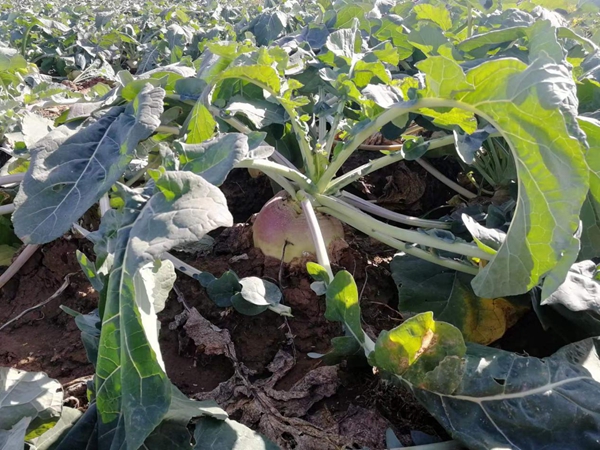Salt-alkali land grows kohlrabi to increase income

A view of the kohlrabi planted on a saline-alkali land. [Photo by Liang Shaoting for chinadaily.com.cn]
In Maji town, Dingtao district of Heze city in Shandong province, the harvest season has commenced for over 100 mu (approximately 6.6 hectares) of kohlrabi. The local area has optimized land utilization by employing scientific and precise techniques in the large-scale cultivation of salt-tolerant kohlrabi.
At the kohlrabi field in Guhutong village, Maji town, more than a dozen workers are diligently engaged in various tasks, including harvesting, digging, leaf trimming, and sorting.
Surprisingly, this productive scene unfolds on a saline-alkali land that was initially deemed unpromising.
This year, Gu Fangzhen, a farmer from Guhutong village, Maji town, planted 4 hectares of kohlrabi on this saline-alkali land that was smeared with a white patch of salt.
"This vegetable exhibits excellent tolerance to salinity and alkalinity and boasts high productivity. 0.06 hectares can yield approximately 2.5 to 3 tons. This year, I've cultivated it on more than 100 mu, with the total yield surpassing 400 tons," explained Gu.
Kohlrabi, resembling radishes in appearance, offers a fresh and palatable taste, primarily used for marinating various pickles. The processed pickles command varying market prices, contributing significantly to increased agricultural benefits.
"We have contracts with nearby pickle factories, and they come to our fields to collect the crops. The value increases several times over after processing,” added Gu. (Edited by Huang Junyao)








